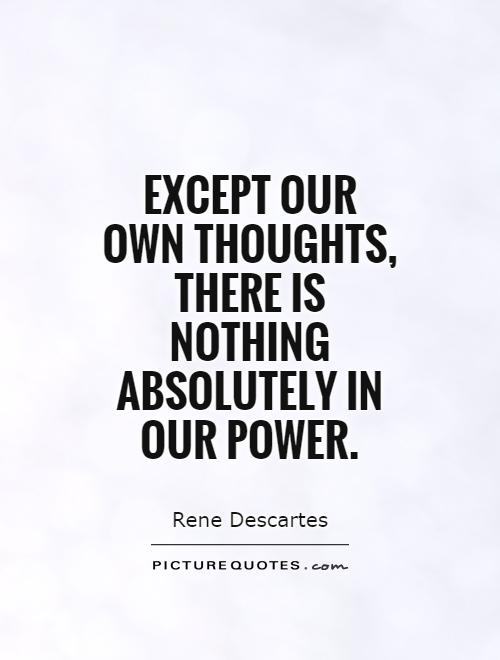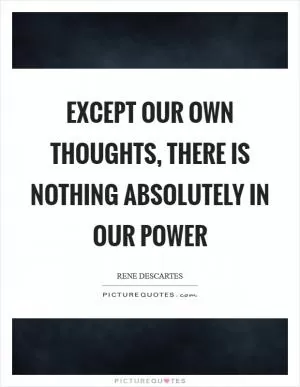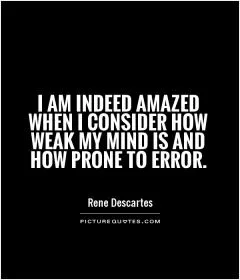Except our own thoughts, there is nothing absolutely in our power

Except our own thoughts, there is nothing absolutely in our power
Rene Descartes, a renowned French philosopher, mathematician, and scientist, is often credited with the famous quote, "Except our own thoughts, there is nothing absolutely in our power." This statement reflects Descartes' belief in the power of the mind and the limitations of human control over external circumstances.Descartes was a proponent of rationalism, the belief that knowledge is derived from reason rather than sensory experience. He famously declared, "Cogito, ergo sum" or "I think, therefore I am," emphasizing the importance of self-awareness and introspection in the pursuit of truth. According to Descartes, the mind is the only thing that we can truly control, as our thoughts and beliefs are within our power to change and manipulate.
In the context of Descartes' philosophy, the statement "Except our own thoughts, there is nothing absolutely in our power" can be interpreted as a reminder of the limitations of human agency. While we may strive to exert control over our external circumstances, such as our physical environment or the actions of others, ultimately we are at the mercy of forces beyond our control. However, our thoughts and beliefs are within our power to shape and mold, allowing us to find meaning and purpose in a world that may seem chaotic and unpredictable.
Descartes' emphasis on the power of the mind has had a lasting impact on Western philosophy and psychology. His ideas laid the foundation for the modern concept of the self as a thinking, rational being capable of introspection and self-awareness. By recognizing the power of our own thoughts, we can cultivate a sense of agency and autonomy in a world that may seem overwhelming and uncontrollable.












 Friendship Quotes
Friendship Quotes Love Quotes
Love Quotes Life Quotes
Life Quotes Funny Quotes
Funny Quotes Motivational Quotes
Motivational Quotes Inspirational Quotes
Inspirational Quotes